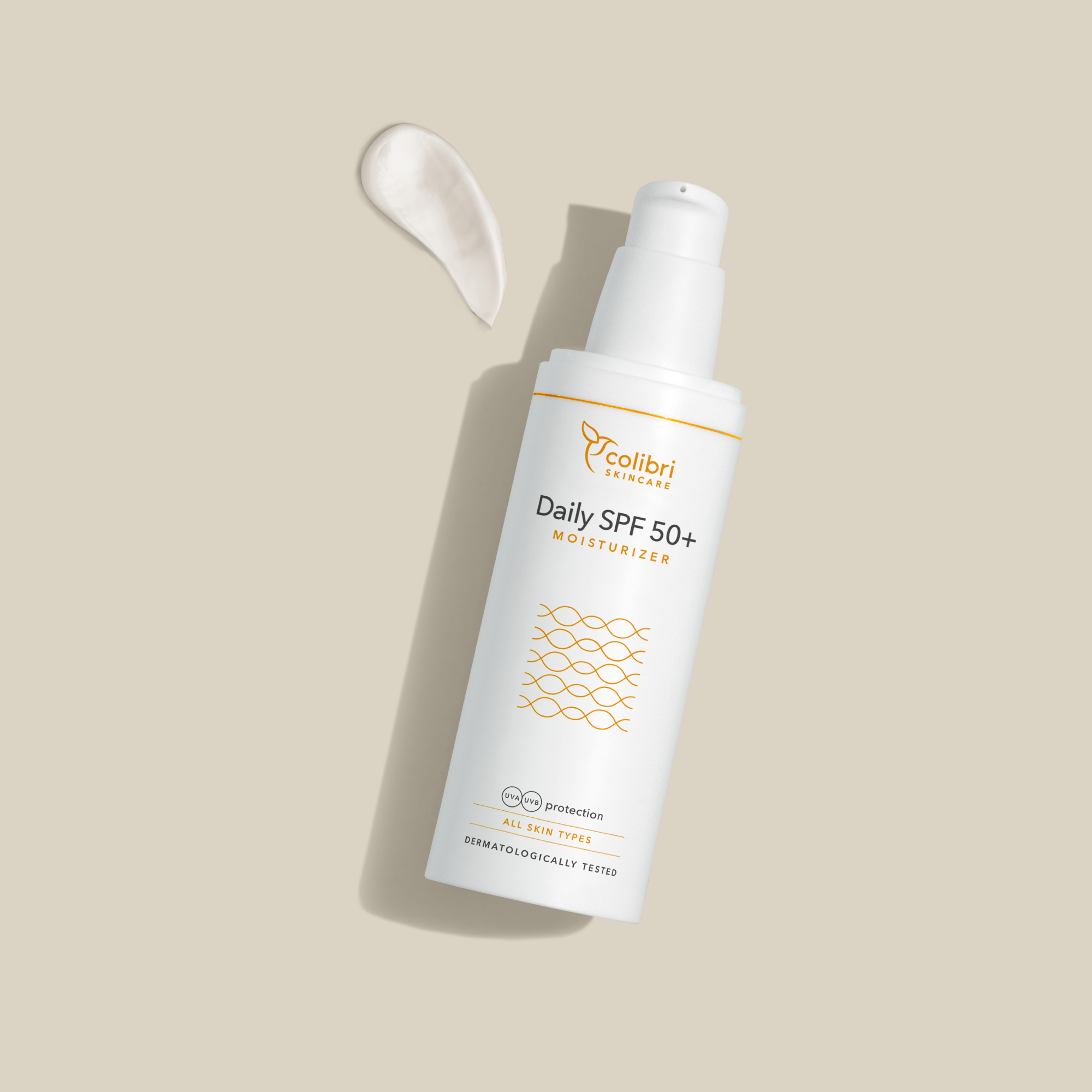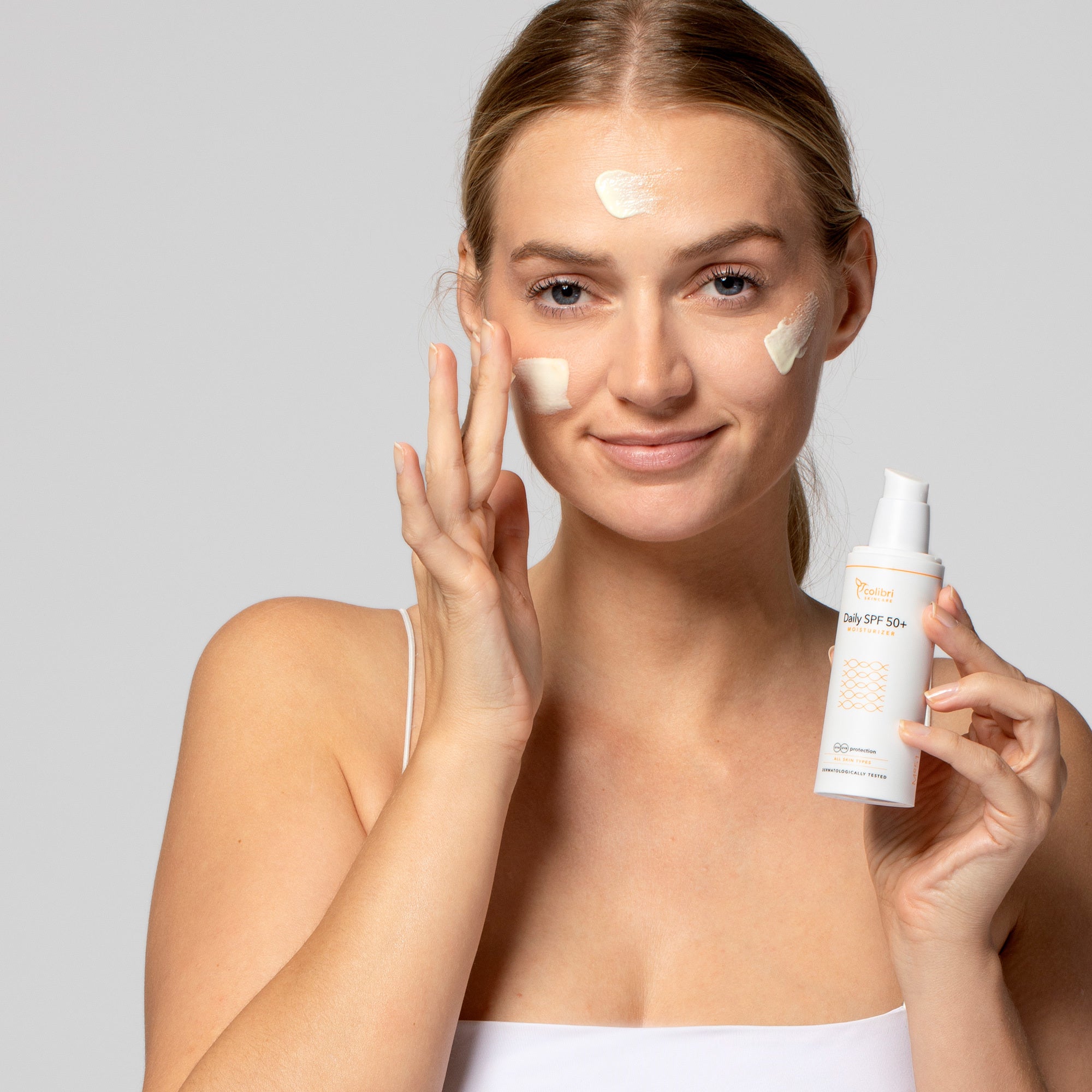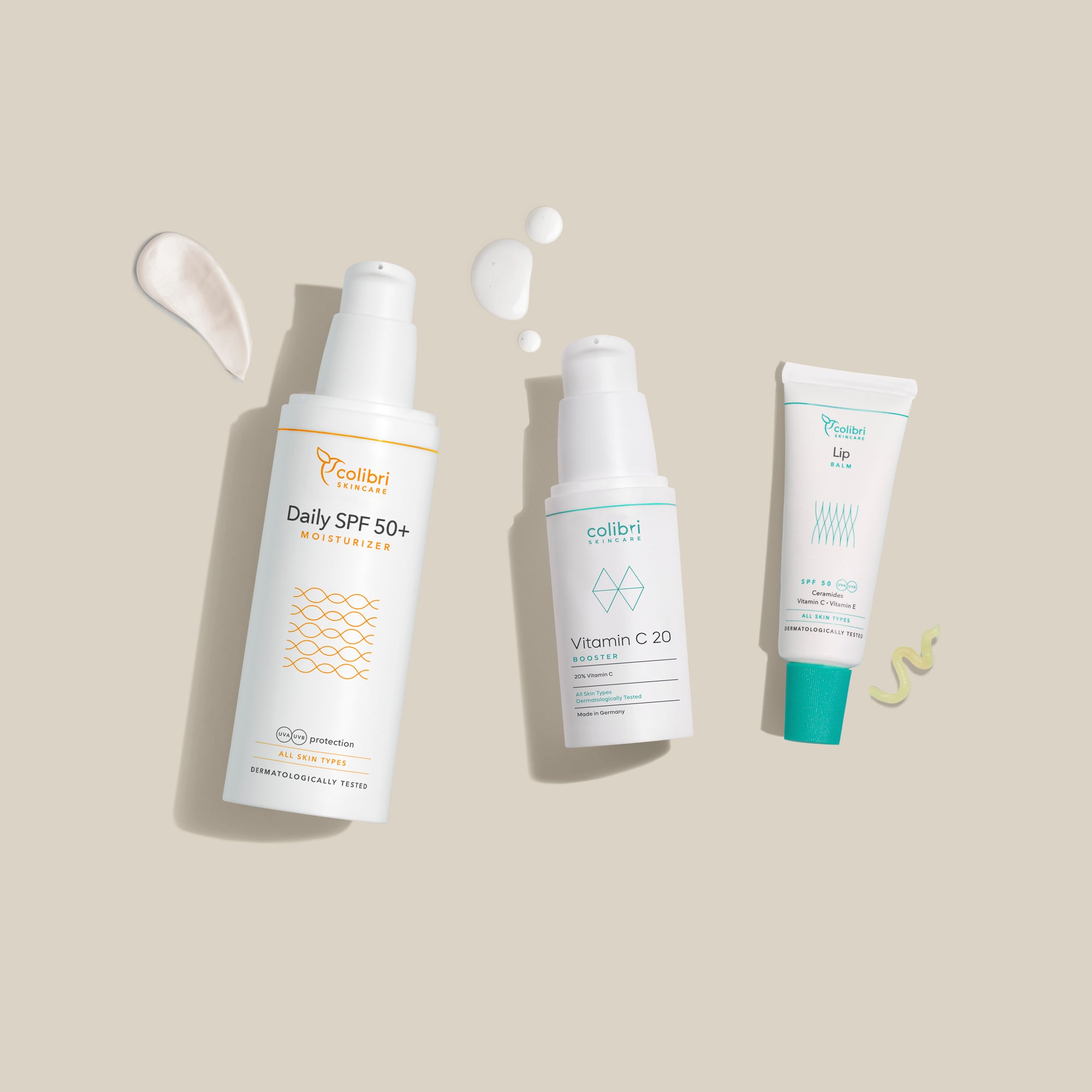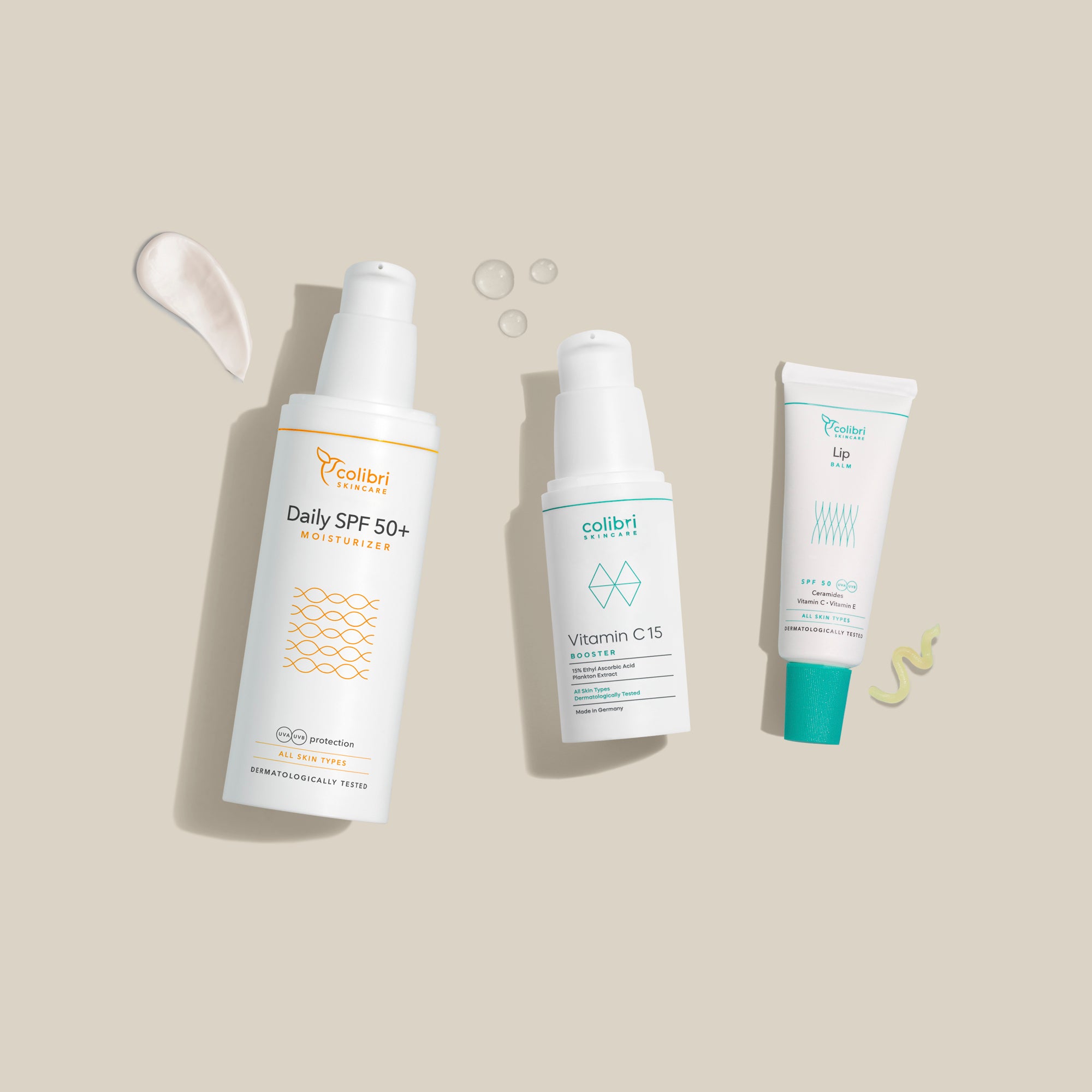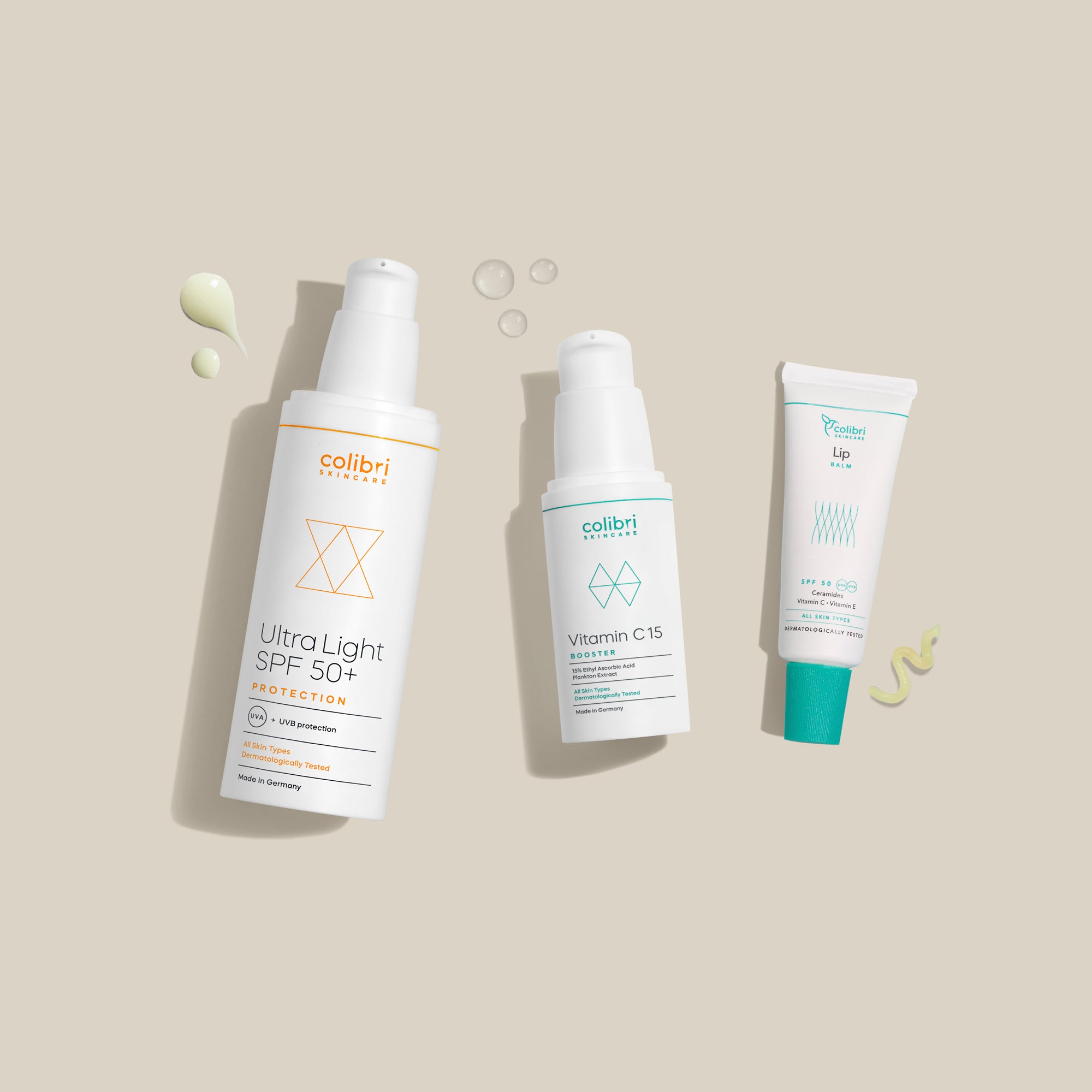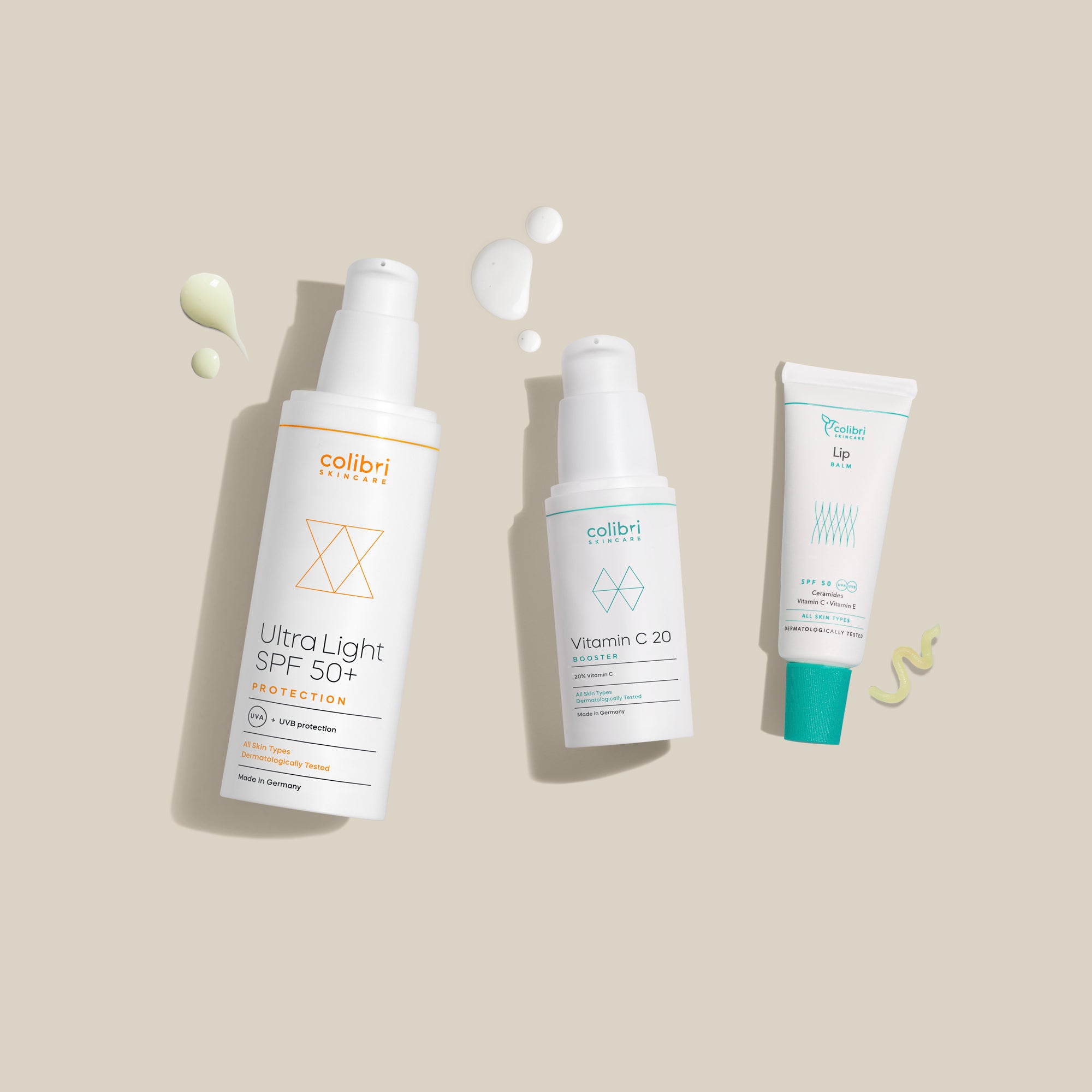WHAT SPF DO I NEED?
The choice of the right SPF depends on various factors, including your skin type, the intensity of sunlight, and the duration of your outdoor activities. Generally, it is recommended to use a sunscreen with an SPF of at least 30, regardless of your skin type. However, if you have very fair or sensitive skin, or if you are in a region with intense sunlight, a higher SPF of 50 or even 50+ may be more suitable. The UV index is also a helpful measure of how strong the sun's UV radiation is and how quickly your skin can be damaged, helping you better estimate its effects.
HOW OFTEN DO I NEED TO REAPPLY SPF 50?
SPF 50 provides high protection against UVB rays, which are responsible for sunburn. It blocks about 98% of UVB rays. An SPF of 50 means that the sunscreen protects your skin about 50 times longer from sunburn than if you were not using any sunscreen. We recommend reapplying sunscreen with SPF 50, such as our Daily SPF 50+ Moisturizer, approximately every two hours, especially during prolonged outdoor activities or after swimming, sweating, or towel-drying. If you are exposed to intense sunlight or have particularly sensitive skin, you may need to increase the frequency of application. Waterproof sunscreens offer longer protection but are not completely water-resistant and should also be reapplied regularly.

